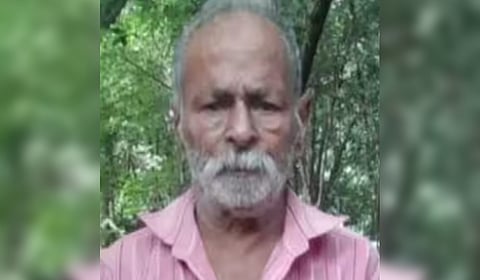

MALAPPURAM: At Charankavu, a small village in Manjeri, a man who became the symbol of a father’s undying love and silent rage has bid his final farewell. Shankaranarayanan, 75, who was accused of shooting down the person who allegedly raped and killed his 13-year-old daughter, passed away at his home on Monday night due to age-related ailments.
It was a February afternoon in 2001 that changed the course of Shankaranarayanan’s life, and shook the conscience of an entire state. His daughter, Krishnapriya, a Class VII student, was returning from school in Elankoor when she was raped and murdered allegdly by her neighbour, Muhammed Koya, 24, of Charankavu Kunnummal.
The accused was soon caught. But he was subsequently released on bail. On July 27, 2002, while he was walking free, a single bullet ended his life. The police later found that Krishnapriya’s father had pulled the trigger.
Shankaranarayanan was arrested, and sentenced to life by the Manjeri Sessions Court. But in 2006, the Kerala High Court acquitted him citing lack of concrete evidence. The court noted the absence of the weapon used for murder and the possibility of other enemies to Koya due to his criminal background. It was a legal closure.
Since that fateful day in 2001, Shankaranarayanan lived not as a free man, but as a father broken by grief. Neighbours recall how every conversation with him would eventually veer towards his daughter.
“He would sit on the verandah, her photograph clutched in his trembling hands,” said a neighbour from Poovvancheri. “He never stopped mourning her. Until his last breath, he lived in the memory of that child,” the neighbour said.
A man of few words, Shankaranarayanan was remembered not for what he said, but for the sorrow he carried so visibly. He lived in the same home in Chenottukunnu, rarely stepping out, surrounded by silence and memories.
For the people here, he was never just Shankaranarayanan — he was Krishnapriya’s father, the man who dared to do what others only whispered in rage. Even after being acquitted, he neither denied nor confirmed the act.